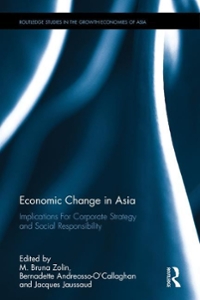Article
\fSince the mid-1970s, one-time cash payments to individuals to stimulate economic growth have been tried on at least ve separate occasions. Presidents Gerald Ford and Jimmy Carter promised that their stimulus checks would restore economic growth by inducing higher consumption. Yet in both instances the payments failed to deliver the promised results. Their impact on economic output was at best negligible and only temporary. n OPINION: POTOMAC WATCH mg; Impeachment Aftermath / Biden's $1.9 'Ii'illion Plan WW. 0 00:00 '0 SUBSCRIBE More recent attempts by Presidents George W. Bush and Barack Obama were similar Ops. The one-time cash payments under Mr. Bush in early 2008 had no discernible impact on the economy. Having seemingly learned nothing from this experience, Mr. Obama proposed the same remedy in 2009 as part of a larger economic stimulus plan. His temporary and targeted cash assistance had, if anything, only a negligible near-term impact. Over the longer run, the economy experienced a remarkably anemic recovery. These failures are consistent with the permanent-income and life-cycle theories of individual consumption behavior. Both theories suggest that individuals' consumption is determined primarily by their income over the long term. Hence, a one-time cash assistance grant doesn't boost consumption. As we iLote on these pages about such programs in 2010, theory and evidence shows that \"they did not work then and they are not working now.\" Although data are still coming in on the effects of the one-time cash payments authorized by last March's Cares Act, so far the pattern is the same. Using a large-scale survey of its effects, a National Bureau of Economic Research study by Olivier Coibion, Yuriy Gorodnichenko and Michael Weber found that \"most respondents report that they primarily saved or paid down debts with their transfers, with only about 15 percent httpsh'fwww. wsj .com/aiclesfthose-2-000-checks-wont~boost-the-economy-1 1 610665993 1/19/2021 Those $2,000 Checks Won't Boost the Economy - WSJ reporting that they mostly Spent it.\" Thus the payments have done little to boost the economy. Under current economic circumstances there is no reason to believe that $2,000 pandemic checks will help the economy, and they will be very costly. Personal income in November, the latest month for which data are available, was nearly 4% higher than a year earlier, when the economy was cruising along at full employment. Another round of checks would bring the total cost of direct payments during the pandemic to more than $900 billion, greater than the 2020 military budget. Temporary grants to state and local governments to stimulate economic growth have a similar history of failure. The two most notable attempts were by Presidents Carter and Obama. On both occasions, state and local governments reduced spending their own money and used the federal funds instead. American households would be far better off if instead the president and Congress began imposing discipline on spending, and the Federal Reserve got out of the bond buying business and returned to a more rules-based policy.










